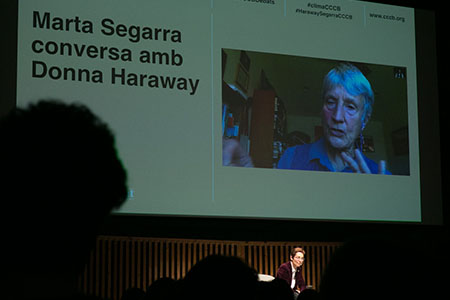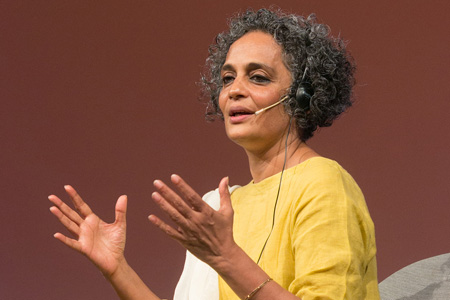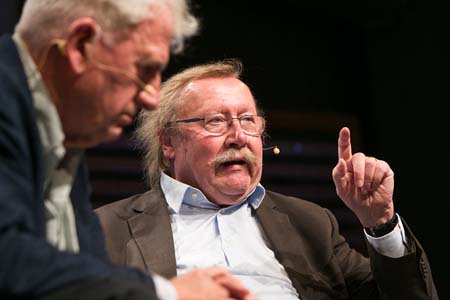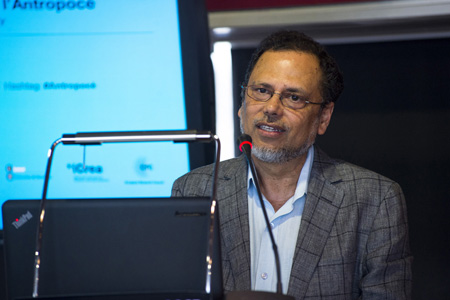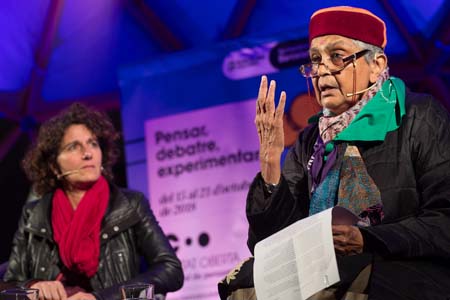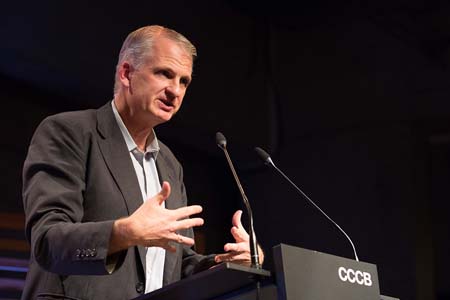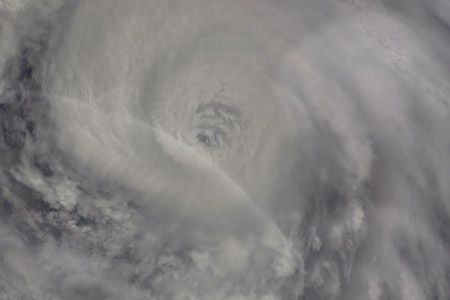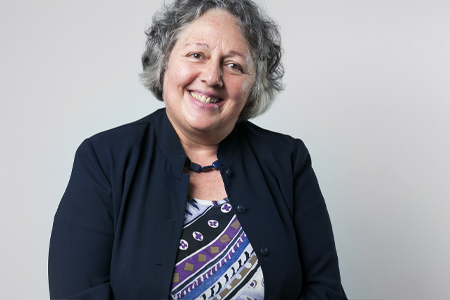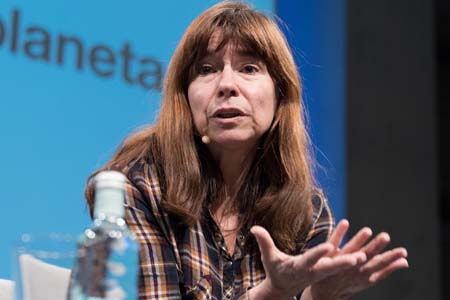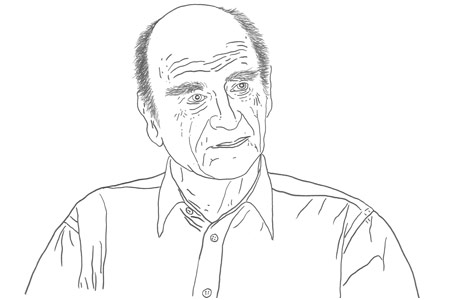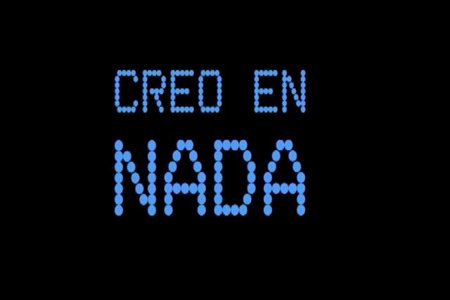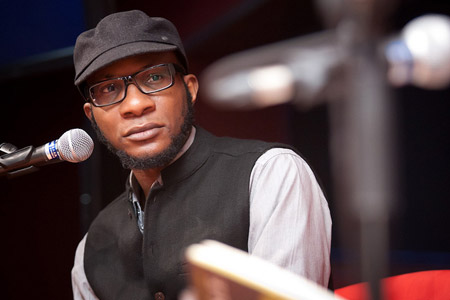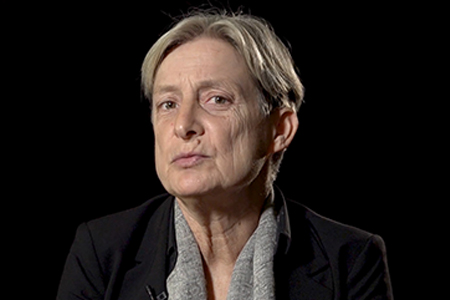Thinking the world after the pandemic
What will the world be like after a global crisis that has and will continue to change our lives? Which languages will allow for creative imagining of the future? We’ve dug out the voices of experts and scholars who have passed through the CCCB that are particularly inspiring for understanding the world after the pandemic.
Donna Haraway
A conversation with Marta Segarra
The biologist and philosopher of science Donna Haraway talks with the Professor Marta Segarra on the occasion of the essay Staying with the Trouble: Making Kin in the Chthulucene (DUP, 2016), in which Haraway proposes new ways of reconfiguring the relations of humans with the earth and all its inhabitants.
Arundhati Roy
Idea, word and action
Arundhati Roy is a writer and activist, widely recognised both for her fictional works and her writings on politics, the environment and human rights. In this conversation with the journalist Natza Farré, the Indian author talks about her work and the publication of the novel The Ministry of ...
Peter Sloterdijk
The Philosopher's Gaze
Peter Sloterdijk is considered to be one of the world’s most influential philosophers, he has published numerous books on the crisis of philosophy in the West and the need for a new system of thought, always taking the stance of a continual criticism of humanism. Almost four decades after the appearance Critique of Cynical Reason (1983), the book which first made his name, Sloterdijk reflects on some of the themes he has worked on in his vast oeuvre which is constructed around a phenomenology of human spaces —from the maternal womb through to the globalised world— and focused on new kinds of religiosity, his idea of ethics as anthropotechnics, and the need for a categorical imperative of dignity and survival. ...
Dipesh Chakrabarty
The Human Condition in the Anthropocene
Dipesh Chakrabarty is a Bengali historian, Professor of History at the University of Chicago and an eminent theorist in postcolonial studies. His research has been concerned with the concept of the Anthropocene. The Anthropocene is concept in scientific debate which forces recognition of such ...
Gayatri Spivak and Marina Garcés
Education of the Future
The Indian thinker Gayatri Spivak calls for slow education and defends the role of local schools and teachers. One of the world’s best known postcolonialism theorists, Spivak advocates creating spaces that are independent of the dominant culture to give voice to the most vulnerable members ...
Timothy Snyder
A Defence of Freedom: On the Rise of Authoritarianism Today
The rise of the extreme right around the world has made manifest a growing mistrust in democracy as a political system in a shift which involves serious curtailment of freedoms and demonisation of minority groups. Timothy Snyder, one of the leading authorities on the history of Europe, warns ...
Kim Stanley Robinson: «Think of Yourself as a Planet»
Prologue of the exhibition «After the End of the World»
The science fiction writer Kim Stanley Robinson made the script and put the voice to this audiovisual piece that opened the CCCB exhibition After the end of the world (2017). The video worked as a prologue of the exhibition and raises a reflection on the relationship and responsibility ...
Rosi Braidotti: “What is necessary is a radical transformation, following the bases of feminism, anti-racism and anti-fascism”
Iu Andrés
Philosopher Rosi Braidotti talks about the post-human ethic, the devastating effects of neoliberal capitalism, and her proposal for affirmative resistance. Braidotti visited the Thinking Biennale. Open City to explain her new post-anthropocentric perspective, but she was unable to avoid discussing ...
A morning with Yayo Herrero
Rethinking our relationship with the planet
The anthropologist and engineer Yayo Herrero talks with secondary school students about how we can rethink our relationship with the planet by adopting an ecofeminist approach, proposing alternative forms of economic and political reorganisation to recreate the broken bonds between humankind and nature.
Michel Serres: To think is to invent
Juan Insua
We interviewed Michel Serres, a French philosopher and mathematician who has sought the passage connecting the scientific and humanist disciplines.
"Credo" by J. G. Ballard
An audiovisual piece from the exhibition “J. G. Ballard. Autopsy of the New Millennium”
“I believe in the power of the imagination to remake the world,” this is the statement of intent that kicks off author J.G. Ballard’s “What I believe”, a prose poem from 1984 that reveals his whole artistic credo. You can hear Ballard reading fragments in this ...
Teju Cole
Open City
US writer and photographer of Nigerian origin Teju Cole visits the CCCB to mark the publication of his novel Open City, winner of the 2012 Hemingway Foundation/PEN Award. A perplexed look at urban life, loneliness, identity and the weight of history.
To Think with Judith Butler
Soy cámara online
Judith Butler got together with 400 adolescents at the CCCB to talk about everything to do with gender.
